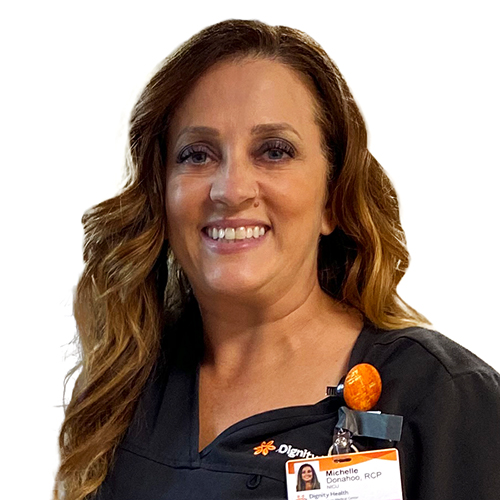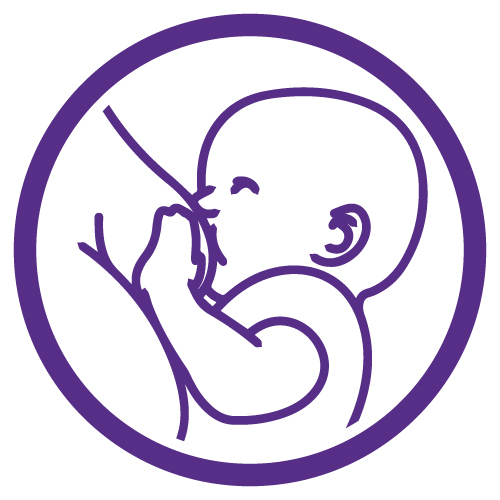 IBCLC Detailed Content Outline: Pathology Focused CERPs - Section III
IBCLC Detailed Content Outline: Pathology Focused CERPs - Section III
Access CERPs on Pathology for the IBCLC Detailed Content Outline recertification requirements. Enjoy convenient on-demand viewing of the latest Pathology focused IBCLC CERPs at your own pace.

An Ecosystemic Approach to the Clinical Management of Breast and Nipple Pain

Carmela is a family medicine MD, bachelor´s degree in Public Health Education, and IBCLC since 2005. She is also a BFHI Evaluator and the co founder and past president of the Spanish Lactation Consultant Association (AECCLM). She works in a private Family Wellness Clinic, Raices, as person in charge of the lactation program, which includes two IBCLCs attending breastfeeding families and an extensive offer of breastfeeding training for health care professionals and breastfeeding peer counsellors. The team has trained over three thousand doctors, midwives and nurses from both the Spanish National Health Service and the private sector in Spain. She is a frequent lecturer at national conferences, and has also lectured internationally, both on-site and online. She is the author of several scientific papers on breast pain, mastitis and tongue tie. She is also the author of a breastfeeding/parenting book, “Amar con los Brazos Abiertos” (To Love with Open Arms). She is married to Carlos and they homeschool their four children.
Topic: Assessment and Management of Mastitis - [View Abstract]
Topic: Getting Milk Production off to a Good Start - [View Abstract]
Topic: Management of Chronic Breast Pain: Holistic Approach - [View Abstract]
Although pain is not a normal part of nursing, many mothers experience this difficulty at some point in their breastfeeding journey. It is one of the main reasons for breastfeeding consultations, and an important cause of early, undesired weaning, especially if the infant is not thriving. Assessment of pain during lactation differs significantly from other types because it is a system we must explore – not a single patient but the interaction between the mother and her infant (that is, the dyad). In this talk, an ecosystemic overview of the evaluation and management of breast and nipple pain is offered, based on current research and clinical practice. With appropriate support, the vast majority of dyads are able to breastfeed comfortably and effectively.

View Details / Enroll

An Introduction to Structural Causes of Deep Breast Pain and Milk Stasis: Subluxations and Myofascial Trigger Points

Dr. Hazelbaker has been a therapist in private practice for over 30 years. She specializes in cross-disciplinary treatment and to that end has taken training in several modalities to best assist her clients. She is a certified Craniosacral Therapist, a Lymph Drainage Therapy practitioner, a Tummy Time™ Trainer, a Haller Method practitioner, A Pre and Perinatal Psychology Educator, a Lactation Therapist Diplomate, an International Board Certified Lactation Consultant and a fellow of the International Lactation Consultant Association.
She earned her Master’s Degree from Pacific Oaks College (Human Development specializing in Human Lactation) and her doctorate from The Union Institute and University (Psychology, specializing in Energetic and Transformational healing.)
People recognize her as an expert on infant sucking issues caused by various structural problems like torticollis, plagiocephaly, brachycephaly and tissue shock-trauma. She invented the Hazelbaker™ FingerFeeder and the Infant Breastfeeding CranioSacral Protocol™ to assist in the resolution of this type of infant sucking dysfunction.
Topic: Cranial Nerves: A Critical Component of the Process of Breastfeeding - [View Abstract]
Topic: Creating Flow: Using Lymphatic Drainage Therapy for Breastfeeding Issues - [View Abstract]
Topic: Finger Feeding: What Do We Know? What Should We Know? - [View Abstract]
Topic: Gamechangers: New studies that will change the way we think about tongue-tie - [View Abstract]
Topic: Infant Trauma: Impact on Breastfeeding - [View Abstract]
Topic: The Faux Tie: When is a "Tongue-tie" NOT a Tongue-tie? - [View Abstract]
Topic: The Impact of Bodywork on Infant Breastfeeding - [View Abstract]
Topic: What Does Torticollis Have to do with Breastfeeding? - [View Abstract]
Deep breast pain and milk stasis are often blamed on back pressure on milk ducts, incomplete emptying and fungal infection. Although these issues can be attributed to backpressure in the case of milk stasis, or "not likely to be related to" in the case of fungal infection inside the breast, the forgotten role that structural integrity plays in breast health can explain those problems that develop and persist despite proper milk removal and general health care of the breast. This presentation covers the anatomy and physiology of rib and vertebral subluxation and myofascial trigger points in generating deep breast pain and milk stasis. Several case reports illustrate the concept; proper care for resolution of these issues is covered.

View Details / Enroll
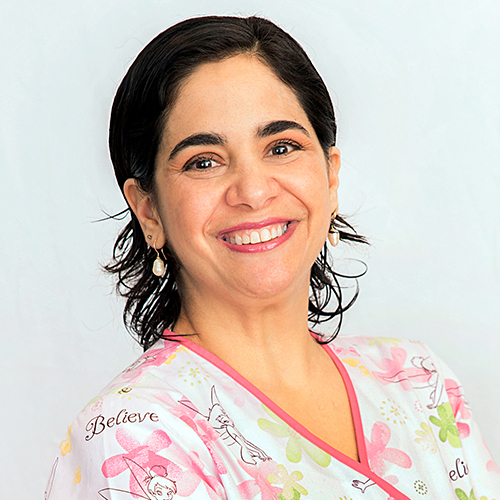
Ankyloglossia Differential Diagnosis: Tongue-Tie, Retrognathia or Hypotonia?

Dr. Camila Palma obtained her Doctor of Dental Surgery (DDS) from Universidad Tecnológica de México (UNITEC), Mexico City. She also holds a Master of Science in Dentistry in Pediatric Dentistry (MSc) from the University of Barcelona, Spain and was certified as an International Board Certified Lactation Consultant (IBCLC) in 2019. Dr. Palma is Associate Professor in the Pediatric Dentistry Postgraduate Department, Peruvian University Cayetano Heredia, and Vice-president of the Peruvian Society of Pediatric Dentistry (2021-2023). She also has her own Pediatric Dentistry dental practice in Lima, Peru (Chis Dental). Dr. Palma is the author of several scientific articles, especially in caries prevention and infant oral healthcare. She is also a lecturer in Latin American and European Dental and Lactation Conferences and content creator on children´s oral health for parents through her YouTube channel (Dra. Camila Palma), instagram and Facebook accounts (@chisdental).
Ankyloglossia is an embryologic variation of the lingual frenulum, which causes a significant restriction in the mobility of the tongue. As such, an altered lingual function is always an essential consideration when faced with breastfeeding challenges. On some occasions however, other anatomic or functional alterations in the babies’ orofacial region can cause breastfeeding problems, similar to those seen in tongue-tie babies. They can be the root of latch difficulties, nipple trauma and/or suction and deglutition issues. In these cases, frenotomy does not solve those problems and therefore, the misdiagnosis and posterior surgical treatment can frustrate parents. From a pediatric dentist perspective, retrognathia (recessed chin) and hypotonia are two common differential diagnosis of tongue tie, which can affect a babies’ suction at the breast. The aim of this talk is to present normal and abnormal orofacial structures so as to differentiate ankyloglossia from two problems that can be part of a “faux tie”, in order to aid breastfeeding consultants, and broaden their perspective on breastfeeding difficulties.


Dr. Tinisha Lambeth is the Neonatal Quality Improvement Coordinator and an Assistant Professor of Pediatrics at Wake Forest School of Medicine. She coordinates quality improvement at Novant Health Forsyth Medical Center NICU as well. She is a Neonatal Nurse Practitioner and received her MSN (2004) & DNP (2014) from Duke University School of Nursing. Over the past 8 years, Tinisha has presented quality improvement work locally, nationally, & internationally. She has co-authored three publications, on the topics of cytomegalovirus, golden hour and the association of different feeding types with necrotizing enterocolitis and growth in premature infants.
Early- and late-onset sepsis is a significant cause of morbidity and mortality in neonates. However, prolonged antibiotic administration alters the microbiome and increases the risk of necrotizing enterocolitis, sepsis, and death in very low birth weight infants and in late preterm and term infants adverse effects include ototoxicity, nephrotoxicity, increased bacterial resistance, and unnecessary costs. Empiric antibiotic therapy for early-onset sepsis and routine Vancomycin usage for late-onset sepsis was a common practice for neonates at this neonatal intensive care unit. Also, antibiotic stewardship in early- and late-onset sepsis management in the NICU posed unique challenges due to variability in provider practices. In this presentation the Model for Improvement quality improvement methodology and three quality improvement projects with a global aim to reduce antibiotic usage will be presented.

View Details / Enroll
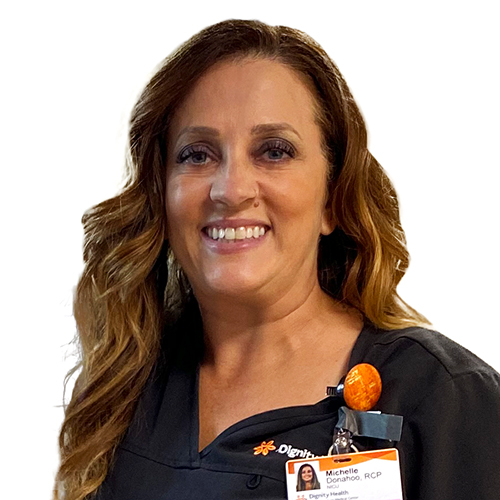

Michelle has been a respiratory therapist for 23 years. Working in the neonatal population for approximately 22 of those years, she was the Neonatal Respiratory Care Specialist for a large organization, where she enjoyed bringing evidenced based practice to the bedside.
Appropriate care of artificial airways is an important part of clinical care in the NICU. This presentation will demonstrate how to provide ongoing care to newborns with an endotracheal tube or a tracheostomy tube. Indications, and contraindications of endotracheal tube management. A variety of securing methods will be reviewed for endotracheal tubes. A review of a variety of chronic conditions that may warrant a tracheostomy tube. The procedure for securing a tracheostomy tube will be reviewed. Cleaning and maintaining a tracheostomy will be discussed. Education with the staff caring for newborns with an artificial airway will be reviewed along with parent education.

Assisted Nursing: Supporting Breastfeeding Infants With Craniofacial Anomalies

Indira has been involved in birth and breastfeeding support for the past 15 years. As a clinician IBCLC, she leads the Specialist Breastfeeding Clinic which is part of the Merton Health Visiting team (Central London Community Healthcare NHS Trust). This Clinic is for complex breastfeeding dyads and by GP/HV/RM referral only. Indira has been awarded the National Institute for Health Research Fellowship (2021-2022) as part of the ARC NWL Improvement Leadership programme. Her project examines how to offer more skilled breastfeeding and lactation care in the NHS nationally. As an Educator and the lead Lecturer of the Breastfeeding London Course, she has been training future IBCLCs for the past 10 years. Indira's roles as Clinician and Educator have led her to the path of research. As the Director of the Centre for Breastfeeding Education and Research, she has published several articles in leading international peer-reviewed breastfeeding and human lactation journals. She has also served La Leche League Great Britain for the past 13 consecutive years.
Craniofacial anomalies (CFA) are a common anatomical malformation that affects the craniofacial region; they present either as cleft lip (CL), cleft palate (CP), or cleft lip and palate (CL/P) with varying degrees of severity. The incidence depends on the population’s ethnicity and geography. Infants with CFA can experience feeding difficulties either at the breast or at the bottle because they can have issues with their suck, swallow, breathe sequence and milk transfer.
This presentation will provide an overview of the anatomy of CFA. Techniques on how best to support families with CFA infants who wish either to breastfeed, maintain lactation or transition towards breastfeeding post-surgery will be discussed. Health care professionals involved in the care sometimes lack the expertise of supporting breastfeeding and often only recommend maternal pumping and specialised bottles. There is limited research about feeding infants with CL/P directly at the breast.
A clinical case will be presented to illustrate clinical techniques and sequence of care.

View Details / Enroll

Babies Cry to Communicate, Not to Manipulate... Non-Medical Reasons for Crying: An Anthropological Approach

Katrien Nauwelaerts graduated as a prehistoric archaeologist in 2005. She's the mother of three breastfed children and the administrator of the Dutch breastfeeding-website Borstvoeding Aardig, https://borstvoeding.aardig.be. Katrien worked as a volunteer breastfeeding-counsellor, provincial coordinator and training manager for the Belgian breastfeeding organisation Borstvoeding vzw between 2010-2014. Up tot 2018 she was the founder and president of Aardig Leven vzw, a non profit ecological organisation. In 2013 she became an IBCLC. Since 2013 she's working as a lactation consultant at her own private practice Borstvoeding Aardig. She became a nutritionist and a herborist in 2014. Katrien shares her experiences and knowledge on lactation consulting as a public speaker since 2014.
Topic: Breastfeeding and The Use Of Herbs - [View Abstract]
Topic: Young Mothers and Breastfeeding in Belgium - [View Abstract]
There is scientific research that says that breastfeeding duration shortens when parents experience their baby as a baby who cries a lot.
There are all kinds of medical reasons why a baby is crying. Crying is a way of communication for a baby. It's a cry for help.
But what if there are no obvious medical reasons for a baby's crying behavior?
This lecture explains sociological and anthropological factors that can influence crying behavior in babies.
Sometimes parents have false expectations about parenting and baby behavior. Sometimes cultural assumptions make parents believe they have a crying baby when they actually haven't. And some cultural or anthropological parameters can strengthen the crying behaviour in a baby. Learn more about normal newborn crying behaviour and how to help parents understand their newborn.
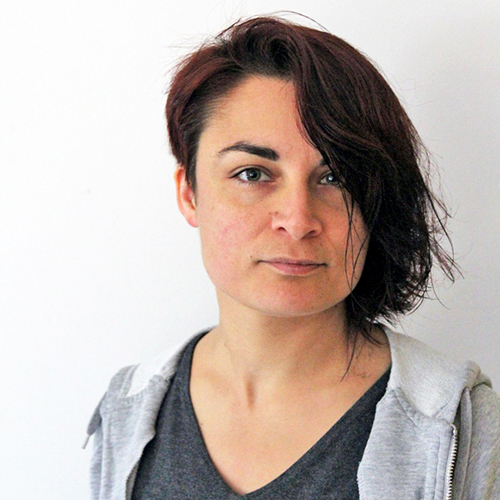
View Details / Enroll
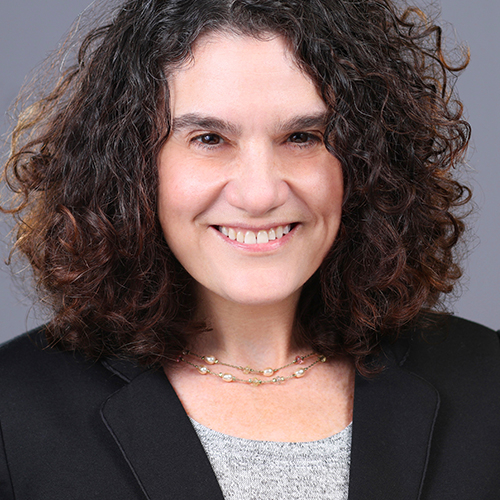
Babies With Suckling Dysfunction: Assessment and Coordination of Care

Leslie has been providing lactation support in Central New Jersey for over 18 years - as a La Leche League (LLL) leader since 2002, an IBCLC at Mercer County WIC from 2014 to 2016, and as a private practice IBCLC since 2011.
Leslie grew up in New York and New Jersey. She graduated from Cook College/Rutgers with a BS in Biochemistry, and from Rutgers University/UMDNJ with a PhD in Biochemistry and Molecular Biology. Leslie's difficulties with early breastfeeding, the help she received from LLL, and challenges with returning to work laid the foundation for her understanding of the importance of skilled and compassionate lactation and infant feeding support.
Topic: Untangling the Big Picture of Tongue-Tie Assessment - [View Abstract]
IBCLCs assess chest/breast and bottle feeding skills and infant’s oral and body anatomy, and the motions that contribute to, or inhibit, the process of feeding as well as post-feeding comfort (digestion and elimination for infant, breast comfort for parent). When infants present with feeding dysfunction, the root of the issue could be from a variety of sources - effects of in utero positioning, prematurity, effects of birth interventions, tight frenulum (ties), asymmetric/tense muscles/fascia, neurological/ reflexive issues, low/high muscular tone, or suckling discoordination, suck-swallow-breathe discoordination, laryngomalacia, compensations for low supply, cleft lip/palate, and more. IBCLCs help families navigate the differential assessment of feeding dysfunction, and at the same time support the family’s feeding and milk supply choices.
This presentation will examine the role of the IBCLC when suckling dysfunction is occurring - for example aiding with latch and bottle feeding, oral/body exercises, referrals for oral evaluations and/or bodywork, or help with frenotomy pre/post work if needed. IBCLCs adjust the care plan as the infant’s feeding skills and parents’ goals grow and change. Developing the skills to aid oral function, and coordinate with specialized practitioners to aid this process, is crucial in order to determine the best course of clinical care, meet the families needs, and allow for the best possible outcome.


Shondra Mattos is an IBCLC (Internationally Board-certified Lactation Consultant) and owner of a Location-independent lactation practice where she provides breastfeeding and infant feeding support to families countrywide.
Shondra finds the science of lactation fascinating, and as such, she has a passion for sharing her understanding of complex lactation subjects with her colleagues and aspiring lactation students. When she's not with clients, speaking, or teaching, she spends time with her husband and daughter in Fayetteville, NC.
Bryna is a lactation consultant, mentor, educator, and birth doula in the Pacific Northwestern United States. They are active in their community as an advocate for mutual aid, reproductive justice, and reduction in barriers to care. They also own and manage an inclusive private practice. As a member of both Queer and Neurodivergent communities, offering inclusive care on every level is very important to Bryna. Their vision is to offer information and tools to providers to build a community of comprehensive, concordant, and individualized care for all families in the perinatal period.
We propose a talk that outlines the anatomy and physiology of normal infant feeding. Our talk will cover the basic functions of infant muscle groups recruited for latching, sucking, swallowing, and drinking human or artificial milk. We believe that if lactation professionals understand normal physiology as it pertains to muscle groups, they will better be able to educate and help the families our profession serves. At the end of this talk, the lactation professional will be able to establish a baseline for normal muscle function when evaluating the breastfed infant. We will use multiple learning modalities to outline and explain the essentials of muscle function in the breastfed infant.

View Details / Enroll

Back to Basics for Cleft Lip and Palate: An Overview of Strategies to Support Lactation in the Neonatal Period and Beyond

Alice Farrow is an IBCLC, writer, speaker, and infant feeding and health equity advocate. Parent of a child born with a cleft lip and palate, Alice has worked extensively, since 2006, with parents, parent organisations, cleft teams health providers and lactation specialists in order to increase awareness of the specific challenges faced by cleft affected infants and their families and to imprve access to adequate lactation support for this community.
Currently based in Rome, Italy, Alice advocates for, and teaches regularly on, the topic of breastfeeding/chestfeeding with an oral cleft via presentations, courses, articles, booklets and handouts and supports parents and professionals wordwide via their Cleft Lip and Palate Breastfeeding website and associated online support group, and in person and distance consultations.
A common misconception among care providers and families is that babies born with an oral cleft cannot breastfeed/chestfeed. This presentation corrects that misconception by exploring cleft types and their expected breastfeeding/chestfeeding outcomes and sharing tools that lactation specialists can use to more effectively support parents when their baby is born with a cleft lip/palate. In particular, during the neonatal period, the lactation specialist is uniquely positioned to support parents to make informed decisions about their feeding choices and create a going home care plan to help them achieve their breastfeeding/chestfeeding goals in the long term.

View Details / Enroll

View Details / Enroll







